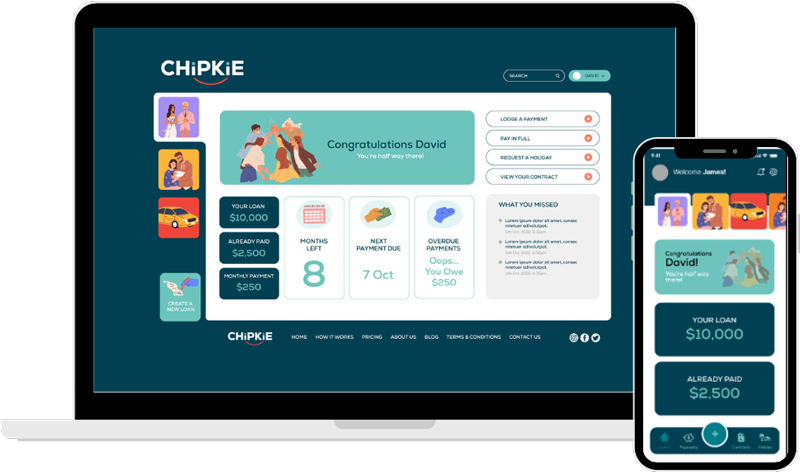The notion that you need a pile of cash to launch a business is simply untrue, you can secure a small business loan with limited funds or trading history. A small business loan can provide the initial capital you need, even if you don’t have extensive savings or an established business history. Of course, securing such a loan requires careful strategizing. This guide will walk you through viable options, essential considerations for approval, and the responsible steps to take after obtaining your funding.
Understanding Your Options: It’s Not One-Size-Fits-All
If bootstrapping your business with your own money isn’t feasible, consider the following external financing sources:
- Traditional Banks and Credit Unions: While traditional lenders may have more stringent requirements, they offer term loans (which are repaid in regular installments over a set period) and lines of credit (offering access to funds up to a limit). Don’t dismiss this route, even as a startup, but be prepared for potential hurdles.
- Online Lenders: These alternative lenders can be more accommodating to new businesses, potentially offering faster approval and flexible terms. Always exercise due diligence with online lenders; research their reputation and be wary of potential scams.
- Business Credit Cards: After qualifying, you can leverage introductory 0% APR periods to secure initial working capital. However, proceed with caution. High standard interest rates kick in when the promotional period ends, and exceeding 30% of your credit limit can negatively impact your credit score.
- Government-Backed Loans: Inquire about programs such as those through the Small Business Administration (SBA) in the US or comparable Australian initiatives. These programs may offer guarantees to lenders, increasing your chances of approval despite limited financial history.
- Microloans: These loans offer smaller amounts with less restrictive criteria, ideal if your initial needs are modest.
- Equipment Financing: If you primarily need to purchase equipment, lenders specializing in asset-backed loans may offer appealing terms.
- Crowdfunding: Platforms like Kickstarter or Indiegogo connect you with a pool of potential backers. Consider this if you have a product or service that can generate pre-sales or reward-based funding.
- Friends and Family: A loan from a trusted loved one may offer favorable terms with minimal interest. Platforms like Chipkie streamline this process, providing a structured agreement and repayment schedule for peace of mind.

Factors Affecting Loan Approval: Building a Strong Case
Lenders assess various factors when considering your application:
- Creditworthiness: Both your personal and business credit scores (if your business has been operating) impact your eligibility. Work on improving your scores in advance to strengthen your position.
- Business Plan: A comprehensive plan outlining your venture’s potential, market research, and realistic financial projections boosts lender confidence.
- Trading History: Existing revenue, even if limited, demonstrates a track record and increases your chances of approval.
- Collateral: Although not always mandatory, offering assets as security can help, especially for larger loan amounts or riskier profiles.
- Industry: Sectors with high growth potential may be favored by certain lenders when evaluating your application.
- Lender-Specific Criteria: Requirements vary, so thorough research into individual lenders and their specific preferences is essential.
Risks and Responsibilities: Smart Borrowing is Crucial
Taking on a loan introduces inherent risks, especially with limited initial capital. Here’s what to understand:
- Default: Falling behind on payments severely damages your creditworthiness, hindering future financing and, in severe cases, leading to legal action or the closure of your business.
- High-Interest Rates: Some loans come with exorbitant costs. Prioritize seeking the most favorable terms and be aware of all the fine print.
- Personal Guarantees: Often required in small business loans, making you personally liable if the business fails to repay.
- Loss of Collateral: If you secure the loan with assets, the lender has the right to seize them upon default.
- Impact on Cash Flow: Loan repayments must be factored into your cash flow to avoid operational disruptions.
Smart Steps After Securing Funding: Set Yourself Up for Success
Once you receive the loan, responsible management paves the way to success:
- Build Credit: Timely repayments enhance your credit scores, setting you up for future financing on even better terms.
- Prioritize Profitability: Focus on generating strong revenue while carefully managing expenses.
- Monitor Cash Flow: Detailed tracking allows for informed decision-making and prevents cash flow problems.
- Sustainable Growth: Aim for steady expansion aligned with your financial capacity rather than overextending yourself.
- Professional Advice: Consulting with an accountant or financial advisor can be invaluable in managing your loan and optimizing your business finances.
Remember, securing a business loan is a weighty decision. Thoroughly assess all options, ensure your capacity to repay, and commit to responsible financial management to give your venture the best possible foundation.





